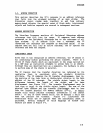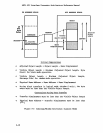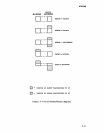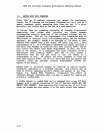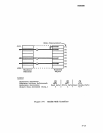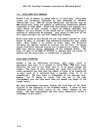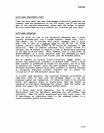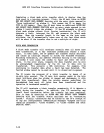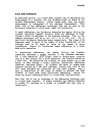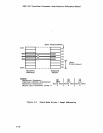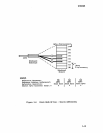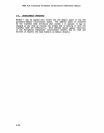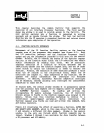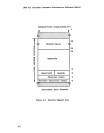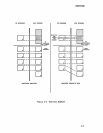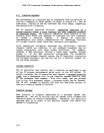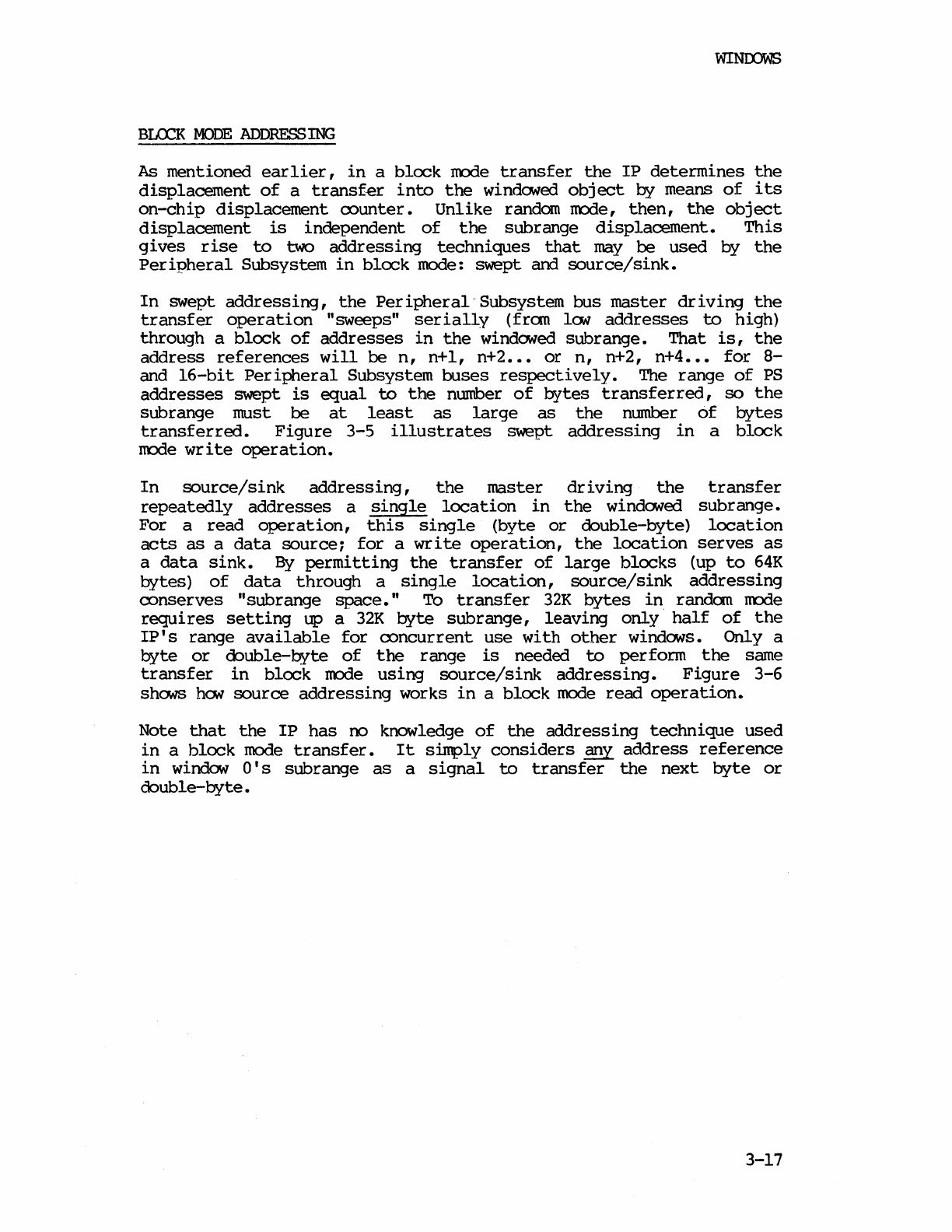
WINOOWS
BLOCK
MODE
ADDRESS
ING
As mentioned
earlier,
in
a
block
mode
transfer
the
IP
determines
the
displacement
of
a
transf€r
inbo
the
windowed
object
b¥ means
of
its
on-chip
displacement
counter.
Unlike
random mode,
then,
the
object
displacement
is
independent
of
the
subrange
displacement.
This
gives
rise
to
two
addressing
techniques
that
may
be
used by
the
Peripheral
Subsystem
in
block
mode: swept
and
source/sink.
In
swept
addressing,
the
Peripheral-Subsystem
bus
master
driving
the
transfer
operation
"sweeps"
serially
(fran
100
addresses
bo
high)
through a
block
of
addresses
in
the
windowed subrange.
That
is,
the
address
references
will
be
n,
n+l,
n+2
•••
or
n,
n+2,
n+4
•••
for
8-
and
l6-bit
Peripheral
Subsystem
buses
respectively.
The
range
of
PS
addresses
swept
is
equal
bo
the
number
of
bytes
transferred,
so
the
sub range must be
at
least
as
large
as
the
number
of
bytes
transferred.
Figure
3-5
illustrates
swept
addressing
in
a
block
mode
write
operation.
In
source/sink
addressing,
the
master
driving
the
transfer
repeatedly
addresses
a
single
location
in
the
windowed
subrange.
For a
read
operation,
this
single
(byte
or
double-byte)
location
acts
as
a
data
source;
for
a
write
operation,
the
location
serves
as
a
data
sink.
By
permitting
the
transfer
of
large
blocks
(up
to
64K
bytes)
of
data
through a
single
location,
source/sink
addressing
conserves
"subrange
space."
To
transfer
32K
bytes
in
randan
mode
requires
setting
up a
32K
byte
subrange,
leaving
only
half
of
the
IP's
range
available
for
concurrent
use
with
other
windows. Only a
byte
or
Cbuble-~te
of
the
range
is
needed
bo
perform
the
same
transfer
in
block
mode
using
source/sink
addressing.
Figure
3-6
shows hoo
source
addressing
works
in
a
block
mode
read
operation.
Note
that
the
IP
has
no
knowledge
of
the
addressing
technique
used
in
a
block
mode
transfer.
It
s~ly
considers
any
address
reference
in
window
0'
s subrange
as
a
signal
to
transfer
the
next
b¥te
or
double-byte.
3-17



